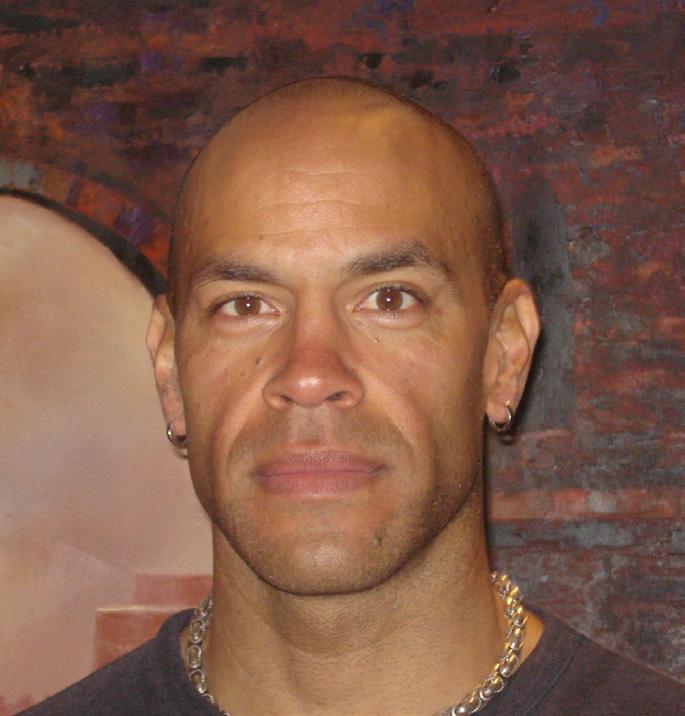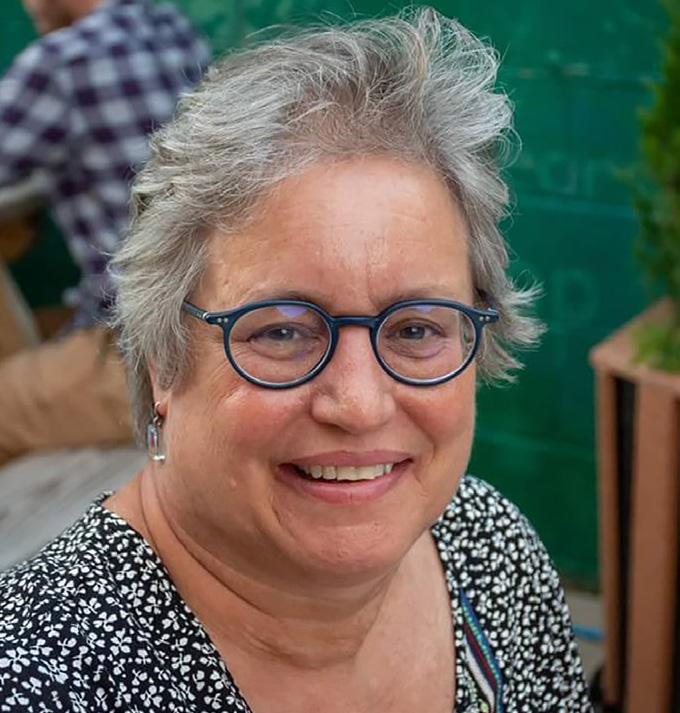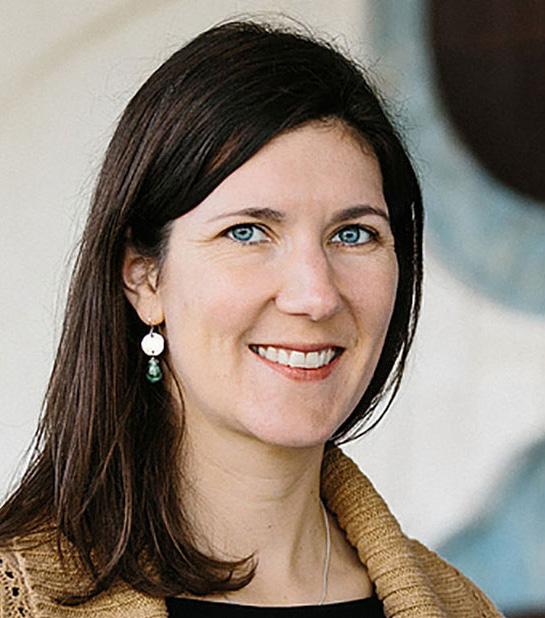
7 minute read
The Black Church and Beloved Community (February 24, 2021) Guy Nave
from Agora Spring 2021
The Black Church and Beloved Community
by GUY NAVE, Professor of Religion
FEBRUARY 24, 2021
Jesus left that place and went away to the district of Tyre and Sidon. Just then a Canaanite woman from that region came out and started shouting, “Have mercy on me, Lord, Son of David; my daughter is tormented by a demon.” But Jesus did not answer her at all. And his disciples came and urged him, saying, “Send her away, for she keeps shouting after us.” Jesus responded to the woman, “I was sent only to the lost sheep of the house of Israel.” But the woman came and knelt before him, saying, “Lord, help me.” Jesus answered, “It is not fair to take the children’s food and throw it to the dogs.” The woman replied, “Yes, Lord, yet even the dogs eat the crumbs that fall from their masters’ table.” Then Jesus answered her, “Woman, great is your faith! Let it be done for you as you wish.” And her daughter was healed instantly. Matthew 15:21-28
It’s my pleasure to join you today and to briefly talk about the role and history of the Black Church in America. PBS recently premiered a four-hour, two-part series entitled The Black Church: This Is Our Story, This Is Our Song. The series traces the history of the Black Church in America. It reveals how Black people have worshipped and, through their spiritual journeys, improvised ways to bring their faith traditions from Africa to America, while translating those traditions into a form of Christianity that was not only truly their own but also a redemptive force for a nation whose original sin included the enslavement of Black people. I strongly encourage everyone to view this powerful series. Pastor Mike Foss recently interviewed me for a blog post that was published on the Luther College Ideas and Creations blog page. I also encourage everyone to read his blog post. As part of that interview, Pastor Mike asked me a series of questions, one of which was, “What are the two or three most significant influences from the Black Church to American culture as a whole?” Part of my response included the ways in which the Black Church has provided (and continues to provide) America with an example of how faith can be used to confront and challenge social injustice and to work for the creation of beloved community. The term “beloved community” was first coined in the early 20th century by the philosophertheologian Josiah Royce. In 1913, Royce wrote, “My life means nothing, either theoretically or practically, unless I am a member of a community.” The word “community” literally means “common unity.” Royce observed that besides the actual communities we experience on a daily basis, there is also an ideal “beloved community” comprised of people who are committed to the wellbeing of all humanity. While Royce is believed to have coined the term, “beloved community,” it was Dr. Martin Luther King, Jr. who popularized the term. For King, the “common unity” of beloved community is our shared humanity. King asserted that members of the beloved community are united by their recognition of and commitment to their shared humanity, and this commitment is demonstrated through justice. For King, beloved community requires the presence of justice for all people. King often said, “Injustice anywhere is a threat to justice everywhere.” While it is often presented as some otherworldly utopian ideal, beloved community is sought for in this world, not some heavenly afterlife. This idea of securing beloved community in this world is emphasized in what is commonly referred to as the Lord’s Prayer. According to Christian tradition, when Jesus’ followers asked him to teach them how to pray, Jesus instructed them to pray in this way, “Our Father in heaven, hallowed be your name. Your kingdom come. Your will be done, on earth as it is in heaven.” The prayer is about establishing the “Kingdom of God”—the reign of God’s justice—here on earth. The Black Church in America has consistently understood the “Kingdom of God” as being reflected in the beloved community. While there is often debate about what constitutes “justice,” I believe justice requires recognition, acknowledgement, and honoring of the equal humanity we all share. The sort of racialized police violence the world witnessed last summer with the brutal and calloused murder of George Floyd is one of the many bla-
Guy Nave
tant examples of a “systemic” disregard of the humanity of Black people. The Black Church was established as a direct response to the denial of the humanity of Black people, exhibited not only by America as a nation but also by the White church in America. Unfortunately, many White Christians supported chattel slavery and other forms of racialized terror and oppression that denied the humanity of Black people. In the passage of scripture read for today, we find the author telling a story of the humanity of a Canaanite woman being denied. After Jesus initially “ignores” the woman and the disciples urge him to “send her away” (even though she is a resident of the region and they are the ones who are visiting), Jesus tells the woman, “I was sent only to the lost sheep of the house of Israel.” He informs her that he was not sent to help her, her daughter, or her people. After Jesus denies her request, the author depicts this Canaanite woman doing the unimaginable: she gets down on her knees in front of this Jewish man and begs for his help. In response to this act of vulnerability, Jesus replies with a statement denying her humanity. Jesus tells the woman, “It is not fair to take the children’s food and throw it to the dogs.” For me, Jesus’ racist comparison of this woman, her daughter, and their people to dogs is extremely disturbing. It doesn’t fit my image of Jesus. The author of the Gospel of Matthew, however, doesn’t seem bothered by presenting a disturbing image of Jesus. I believe the author wants this story to be disturbing, because the message is found in the midst of the disturbance. Matthew’s story reveals an attitude of ethnic (and possibly even patriarchal) superiority that the author challenges. The story reveals how easily people can be influenced by the prevailing sexist, racist, and ethnocentric views of their time and culture. Even Jesus is influenced by such views. This marginalized Canaanite woman, however, confronted and challenged such views. After Jesus’ comment about not giving the children’s food to the dogs, this Canaanite woman responded by saying, “Yes, Lord, yet even the dogs eat the crumbs that fall from their masters’ table.” For the record, I don’t read this statement by the Canaanite woman as evidence of self-hatred or an acceptance of Jesus’ designation of her and her people as dogs. Instead, I read it as this Canaanite woman meeting Jesus where he is and then challenging him by showing him that he fails to exhibit the type of compassion that would be exhibited even toward dogs. This Canaanite woman demonstrates what I call confrontational faith—a faith so strong she dared to challenge a man many called “the son of God.” For this Canaanite woman, Jesus’ response was not consistent with what she considered to be the love of God. If Jesus truly was the son of God, he needed to demonstrate the love of God. This Canaanite woman had an image of God as compassionate and merciful, and Jesus’ response was not consistent with that image. She believed so strongly in whom she understood God to be that she was willing to challenge Jesus. The challenge made by Black Lives Matter activists against American society is a similar challenge. BLM activists—like the Black Church and a long line of other Black activists— are challenging America to live up to its espoused founding principle that “all people are created equal” and “are endowed by their Creator with certain unalienable rights.” If it is true that “all lives matter,” then America needs to demonstrate it by showing that “Black lives matter.” Significant societal change has often been the result of confrontational faith—faith so committed to notions of equity, justice, and compassion that it is willing to confront and challenge injustice even when that injustice is demonstrated by those in positions of great power—whether it be the president of the United States, or, as in Matthew’s story, Jesus. In Matthew’s story, Jesus is transformed by the faith of the Canaanite women. Jesus marvels not only at what the woman says but also at her courage for saying it. Jesus celebrates her faith—a faith that empowered her to confront and challenge not only him but also hundreds of years of prejudice and oppression. Confrontational faith has been and continues to be the faith of the Black Church, and it is this faith that the Black Church shares with the world because it is this faith that leads to the creation of beloved community.










